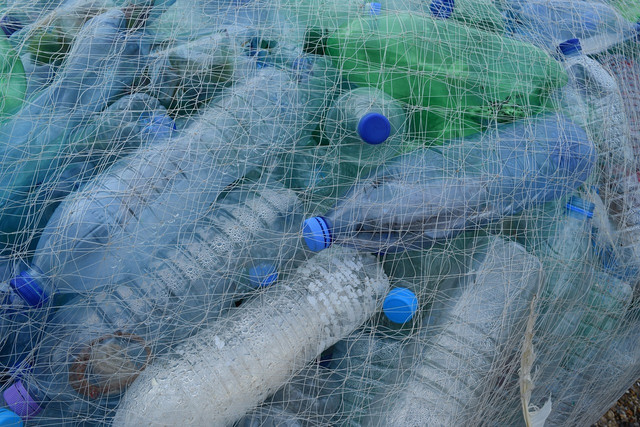What is a Certified B Corporation? The answer is complex. While B corporations may not differ much from conventional corporations, measures must be taken to become a Certified B Corp.
You may have seen the Certified B Corporation logo before, with a large encircled B in the center. This certification, valid in the US and Canada, is granted to socially- and environmentally-conscious businesses. This is a private certification made by B Lab, an international non-profit organization.
A Certified B Corporation is different from the legal designation of benefit corporations in the US, which may refer to businesses whose work benefits local communities or the environment (for example). Although in both cases, the b stands for benefit, benefit corporations are not affiliated with B Lab. Rather, they are designated by US states. Some examples of benefit corporations are the crowdfunding platform Kickstarter, King Arthur Flour Company and Laureate Education.
What Is a Certified B Corporation?

(Foto: CC0 / Pixabay / RoyBuri)
The B Lab is a global organization situated across the US, Europe, Africa, Asia, Australia and New Zealand, and through a partnership in Latin America. There are over 6,000 Certified B Corps across 159 industries in 89 countries. According to the official website, Certified B Corporations are businesses that “meet the highest standards of social and environmental performance, transparency and accountability.” B Corps are for profit, but they use their profits and growth to benefit the planet as well as stakeholders.
The most notable difference between B Corps and other corporations is that B Corps are held to a higher ethical standard. The B Corp values are racial equity, climate justice and a stakeholder economy. The B Lab pursues racial equity through centering businesses owned by historically marginalized groups, investing in inclusion and resources for people of color, supporting anti-racism action, and more. The organization strives for climate justice through advocating for net zero emissions as well as new policies and regulations for a regenerative economy. The B Lab acknowledges the ability of companies and public policies to be involved in climate activism.
B Lab and a Stakeholder Economy
The B Lab advocates for a stakeholder economy and requires all its certified businesses to utilize this model. According to the B Lab, “a stakeholder economy requires businesses to create value for multiple stakeholders including workers, customers, communities, the environment, and shareholders.” This means that the business is not focused solely on profits. Corporations with a stakeholder economy model are committed to regulations which positively impact society and the climate, and stakeholders are considered in their decision-making.
Becoming B Corp Certified



(Foto: CC0 / Pixabay / StartupStockPhotos)
What is the Certified B Corporation process like? The rigorous process of getting certified means that only 40 percent of companies are granted certification on their first try. To gain and maintain certification, businesses are graded on the B Impact Assessment tool, which assesses social and environmental performance. This takes at least one year, and certification is only granted for a score of 80 or higher. The ideal score is 85.
Companies which pass the assessment process must commit to stakeholders and company governing regulations. They then must publish an impact report in the B Corp Directory. Finally, the company must pay an annual fee. All B Corp businesses go through the process every three years to maintain the certification.
There are many benefits to a business becoming B Corp Certified. Namely, the certification proves the business is meeting the highest environmental and social standards, so consumers can be confident in their shopping. For example, B Corps’ pay ratio of highest to lowest paid employees is six to one, whereas the world average is 144 to 1. B Corps are also twice as likely to screen suppliers based on social and environmental standards. Some examples of B Corps include Patagonia, Tillamook, Ben & Jerry’s, Bombas, and Grove Collaborative.
Drawbacks of B Corps



(Foto: CC0 / Pixabay / MatthewGollop)
B Corp certification has been criticized for several reasons. Some believe the requirements are too general, that it doesn’t go far enough, and actually aids in greenwashing. The requirements for certification are holistic, as opposed to more specific certifications like the Climate Neutral certification or the Leaping Bunny label.
There are some companies with B Corp certification which many have questioned. For example, Innocent Drinks is a B Corp although it is owned by one of the world’s biggest polluters, Coca Cola. The same is true of Nespresso, which is owned by Nestle. These examples might make one question how far the B Lab goes in examining suppliers, company partners, and more.
The certification is also not legally enforceable, because B Lab is a private organization. This, combined with the monitoring being based on self-reporting, means there is not a lot of accountability for B Corps. It is therefore difficult to measure a quantifiable impact of the certification. Still, these criticisms must be considered in light of the positives of B Corp certification as well.
Read more:
- Fairtrade Definition and its Difference from Fair Trade
- What Does the “USDA Certified Organic” Label Actually Mean?
- Zero Waste Lifestyle Guide: Simple Tips Towards Sustainable Living
Do you like this post?






